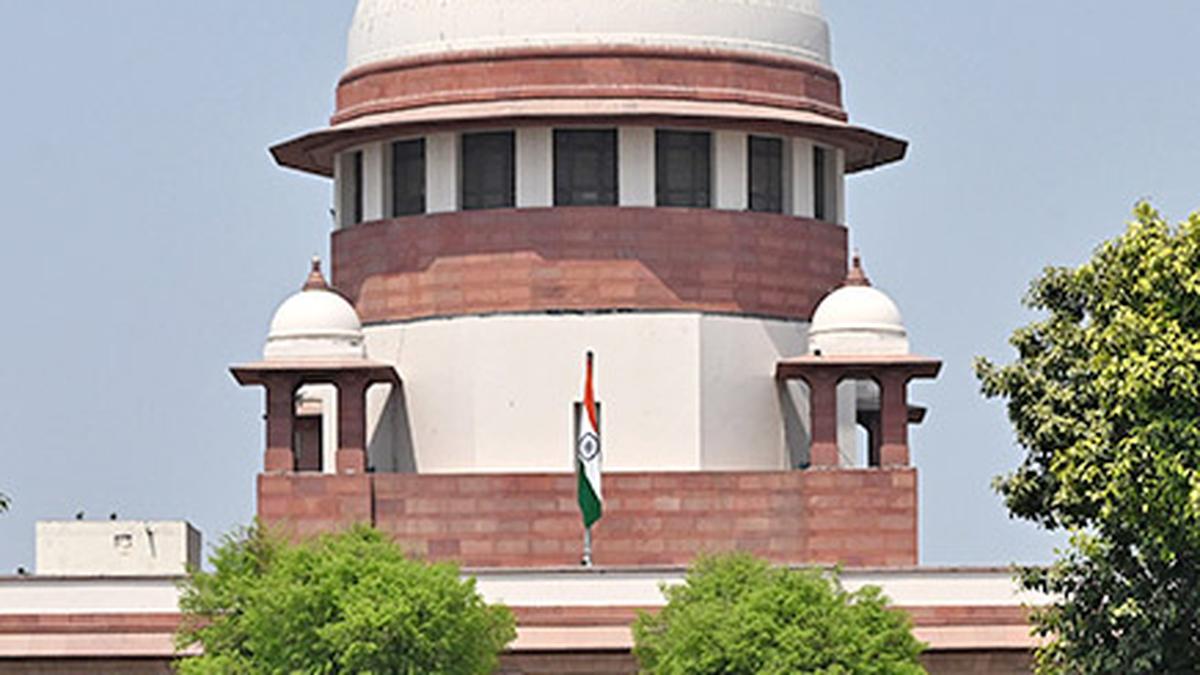
SC confirms bail conditions restricting participation in political process are a breach of fundamental rights
The Hindu
The Supreme Court in the Arvind Kejriwal case confirmed that bail conditions restricting a political leader from political activities and public rallies amount to a breach of fundamental rights.
The Supreme Court on Friday in the Arvind Kejriwal case confirmed that bail conditions restricting a political leader from political activities and public rallies amount to a breach of fundamental rights.
To reach this conclusion, a Bench of Justices Sanjiv Khanna and Dipankar Datta referred to the very judgments quoted by the Directorate of Enforcement (ED) against Mr. Kejriwal.
One of these judgments happened to concern former Andhra Pradesh Chief Minister Chandrababu Naidu’s case. In this case, the top court had deleted the bail condition restricting his political participation.
“A coordinate Bench (of the Supreme Court) by an interim order had deleted the condition restraining Mr. Naidu from organising or participating in public rallies and meetings, thereby permitting him to participate in the political process,” the Bench pointed out in the interim order on Friday. This petition seeking special leave to appeal is still pending.
The ED had earlier argued that Mr. Kejriwal should not be allowed interim bail because even the right to vote could be curtailed under Section 62 (5) of the Representation of the People Act, 1951. The Central agency had argued that there was no fundamental right to campaign in an election when one’s right to vote itself could be restricted.
However, the court found a loophole in the argument. “Interestingly, the proviso to Section 62(5) states that a person subjected to preventive detention can vote”. The court said there were several of its decisions which referred to the role of elections in a democracy as that of a barometer and the lifeline of the parliamentary system.

“Writing, in general, is a very solitary process,” says Yauvanika Chopra, Associate Director at The New India Foundation (NIF), which, earlier this year, announced the 12th edition of its NIF Book Fellowships for research and scholarship about Indian history after Independence. While authors, in general, are built for it, it can still get very lonely, says Chopra, pointing out that the fellowship’s community support is as valuable as the monetary benefits it offers. “There is a solid community of NIF fellows, trustees, language experts, jury members, all of whom are incredibly competent,” she says. “They really help make authors feel supported from manuscript to publication, so you never feel like you’re struggling through isolation.”

Several principals of government and private schools in Delhi on Tuesday said the Directorate of Education (DoE) circular from a day earlier, directing schools to conduct classes in ‘hybrid’ mode, had caused confusion regarding day-to-day operations as they did not know how many students would return to school from Wednesday and how would teachers instruct in two modes — online and in person — at once. The DoE circular on Monday had also stated that the option to “exercise online mode of education, wherever available, shall vest with the students and their guardians”. Several schoolteachers also expressed confusion regarding the DoE order. A government schoolteacher said he was unsure of how to cope with the resumption of physical classes, given that the order directing government offices to ensure that 50% of the employees work from home is still in place. On Monday, the Commission for Air Quality Management in the National Capital Region and Adjoining Areas (CAQM) had, on the orders of the Supreme Court, directed schools in Delhi-NCR to shift classes to the hybrid mode, following which the DoE had issued the circular. The court had urged the Centre’s pollution watchdog to consider restarting physical classes due to many students missing out on the mid-day meals and lacking the necessary means to attend classes online. The CAQM had, on November 20, asked schools in Delhi-NCR to shift to the online mode of teaching.









